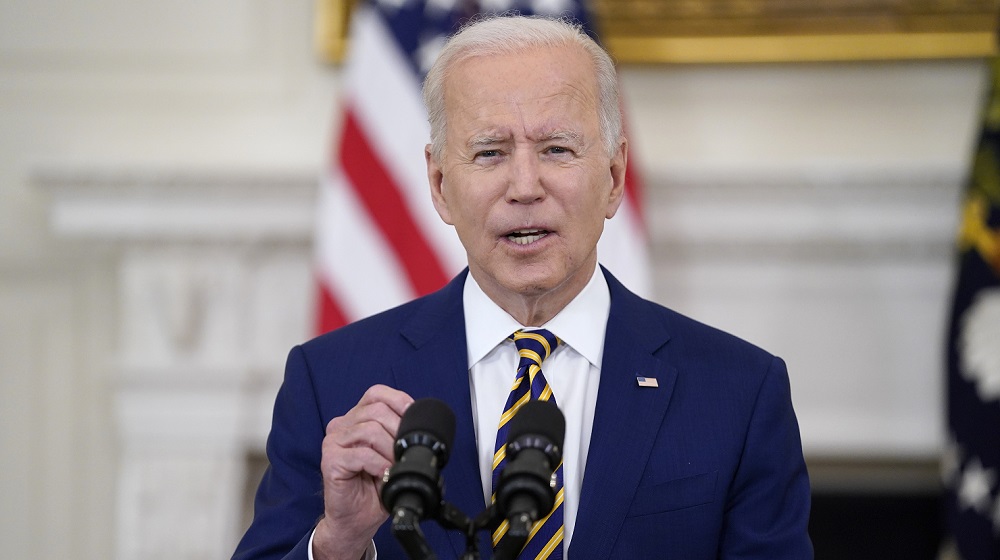
Evan Vucci/AP
President Joe Biden speaks in the State Dining Room of the White House in Washington.
Expanding summer programs and employment opportunities for youth is a key plank of President Joe Biden’s plan to curb rising gun violence in American cities.
The plan, unveiled last Wednesday, gave explicit permission for hundreds of billions in American Rescue Act Funds to go toward these programs, and was welcomed by youth-serving organizations.
“If you come at [crime] strictly from a law and order perspective, things won’t change,” said Nancy Flake Johnson, president and CEO of the Urban League of Greater Atlanta.
The Urban League operates a number of programs for teens and young adults, including young people in the criminal justice system.
Flake said access to additional funding creates new possibilities for the organization, which plans to propose a new community violence intervention program to the city of Atlanta.
Criminologists who prepared a report for the National Commission on COVID-19 and Criminal Justice say homicides in major cities rose 30% in 2020. They attributed the crime surge to “a perfect storm” of factors including the pandemic and the unrest over police violence following the murder of George Floyd.
The White House’s plan to combat gun violence consists of five main strategies: Stem the flow of firearms; support local law enforcement; help formerly incarcerated people successfully reenter community life; invest in evidence-based community violence interventions; and expand summer programming and employment opportunities for teenagers and young adults.
Aaron Phillip Dworkin, chief executive officer of the National Summer Learning Association, said the president’s decision to invest in youth programs “is very consistent with the administration’s priorities.”
He said engaging youth over the summer, especially in paid jobs and internships, allows them to develop job skills, catch up or move forward academically, and stay safe and productive when not in school.
Evidence suggests these programs can be effective in keeping youth out of trouble.
Miami-Dade County’s Fit2Lead program provides after-school recreation and job training in neighborhoods with high crime rates. A 2019 study of the program published in the American Journal of Public Health found a significant reduction in juvenile arrests over the two-year evaluation period.
County commissioners recently approved a multimillion dollar expansion of the program, including internships and enrichment for youth in the juvenile justice system, the Miami Herald reported.
“We’re going to be creating new outlets for the highest-risk youth,” Mayor Daniella Levine Cava was quoted saying by the Herald. “There is no time to waste.”





























